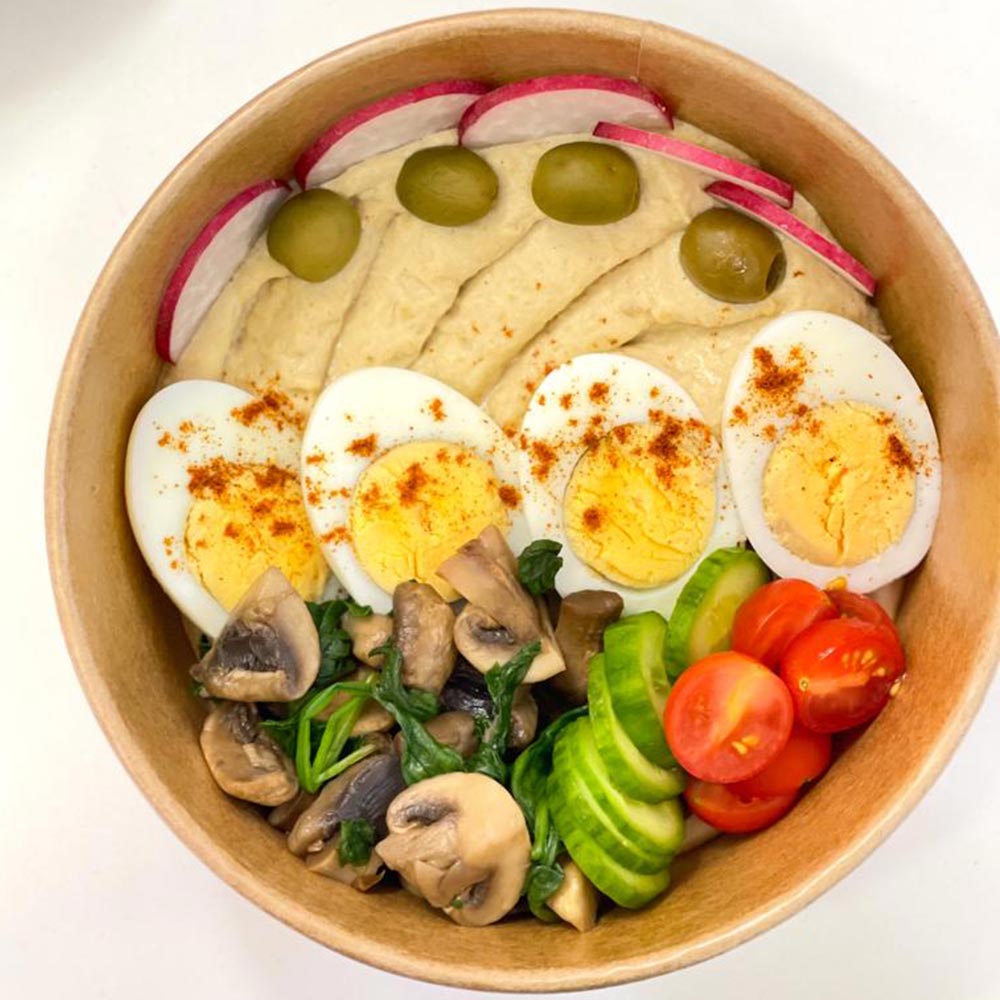When it comes to optimizing muscle growth, one key factor
that often gets overlooked is the role of macronutrients in your diet.
Understanding how to balance protein, carbohydrates, and fats is crucial for
fueling your workouts, supporting muscle repair, and ultimately achieving your
muscle-building goals. In this blog post, we will break down the importance of
macronutrients for optimal muscle growth and provide you with valuable insights
on how to craft a muscle
building diet plan that works for you.
Understanding the Basics of Macronutrients
When it comes to building muscle, understanding the role of
macronutrients is essential. Macronutrients are the three main components of
our diet: protein, carbohydrates, and fats. Each macronutrient plays a crucial
role in fueling muscle growth and repair.
Protein
Protein is often referred to as the building block of
muscles. It is essential for muscle repair and growth, making it a key
component of any muscle-building diet plan. Aim to consume around 1 to 1.2
grams of protein per pound of body weight to support muscle growth.
Carbohydrates
Carbohydrates are the body's primary source of energy,
especially during intense workouts. Opt for complex carbohydrates like whole
grains, fruits, and vegetables to provide sustained energy for your muscles.
Fats
Healthy fats play a vital role in hormone production and
overall health. Include sources of omega-3 fatty acids like salmon, walnuts,
and flaxseeds in your diet to support muscle recovery and growth.
By balancing your intake of protein, carbohydrates, and
fats, you can optimize your muscle-building efforts and achieve your fitness
goals more effectively.
Balancing Protein Intake for Muscle Growth
Protein is a crucial macronutrient when it comes to building
muscle. It is the building block of muscle tissue and is essential for muscle
repair and growth. To optimize muscle growth, it's important to consume an
adequate amount of protein.
As a general guideline, aim to consume 1 to 1.5 grams of
protein per pound of body weight per day. This means if you weigh 150 pounds,
you should aim to consume between 150 to 225 grams of protein daily.
It's also important to focus on high-quality sources of
protein such as lean meats, poultry, fish, eggs, dairy products, and
plant-based sources like tofu, legumes, and quinoa. These sources provide
essential amino acids that are necessary for muscle protein synthesis.
Additionally, timing your protein intake around your
workouts can maximize muscle growth. Consuming protein-rich foods or
supplements before and after your workouts can help promote muscle repair and
growth.
Include protein in every meal and snack to ensure a
consistent intake throughout the day.
Experiment with different protein sources to keep your meals
interesting and varied.
Consider supplementing with protein shakes or bars if you
struggle to meet your daily protein requirements through whole foods.
Choosing the Right Carbohydrates for Energy
When it comes to fueling your workouts and supporting muscle
growth, not all carbohydrates are created equal. It's essential to choose the
right types of carbs that provide sustained energy and help you power through
intense training sessions.
Identifying Complex Carbohydrates
Complex carbohydrates, such as whole grains, legumes, and
starchy vegetables, are excellent choices for fueling your body during
workouts. These carbs break down slowly in the body, providing a steady release
of energy to keep you going strong throughout your training session.
The Role of Carbohydrates in Fueling Workouts
Carbohydrates are your body's primary source of energy,
especially during high-intensity exercise. By consuming adequate carbs before
and after your workouts, you can optimize your performance, prevent muscle
fatigue, and support muscle recovery.
Utilizing Healthy Fats in Your Diet
When it comes to fueling your muscle growth, healthy fats
play a crucial role in supporting overall health and performance. Incorporating
the right kinds of fats into your diet can help optimize your muscle-building
efforts and enhance recovery.
Understanding the benefits of including healthy fats:
Healthy fats, such as avocados, nuts, and olive oil, provide
a concentrated source of energy that can fuel your workouts and support muscle
growth.
Omega-3 fatty acids, found in fatty fish like salmon and
chia seeds, possess anti-inflammatory properties that aid in muscle recovery
and reduce exercise-induced inflammation.
Fats are essential for hormone production, including
testosterone, which is crucial for muscle building and repair.
When incorporating fats into your muscle-building diet, aim
for a balance of monounsaturated, polyunsaturated, and saturated fats to
support various bodily functions and promote overall health.
Optimizing Nutrient Timing for Muscle Recovery
After a strenuous workout, your muscles need the right
nutrients at the right time to repair and grow. Here are some key strategies to
optimize your nutrient timing for muscle recovery:
Importance of Post-Workout Nutrition
Immediately after your workout, your body is in a prime
state to absorb nutrients and kickstart the recovery process. Aim to consume a
combination of protein and carbohydrates within 30 minutes of finishing your
workout.
Maximizing Protein Synthesis
Protein is crucial for building and repairing muscle tissue.
Consuming a high-quality protein source, such as lean meats, fish, eggs, or
plant-based proteins, post-workout can help enhance protein synthesis and
muscle recovery.
Glycogen Replenishment
Carbohydrates are essential for replenishing glycogen stores
that fuel your muscles during workouts. Including complex carbohydrates like
whole grains, fruits, and vegetables in your post-workout meal can help restore
energy levels and support muscle recovery.
Hydration for Recovery
Don't forget the importance of hydration in the recovery
process. Drink plenty of water post-workout to support nutrient absorption,
muscle function, and overall recovery.
By paying attention to your nutrient timing and ensuring you
provide your body with the right nutrients after exercise, you can enhance
muscle recovery, promote muscle growth, and maximize the benefits of your
workouts.
The Importance of Hydration for Muscle Health
Proper hydration plays a vital role in the overall health
and function of your muscles. When you're adequately hydrated, your muscles can
work more efficiently, leading to improved performance and faster recovery.
During exercise, especially intense workouts, your muscles
lose water through sweat. Dehydration can negatively impact your muscle
function, leading to decreased strength, endurance, and increased risk of
injury.
Staying hydrated also helps with nutrient delivery to your
muscles, aiding in muscle repair and growth. Water is essential for maintaining
proper blood flow, which transports oxygen and nutrients to your muscle
tissues.
It's recommended to drink water before, during, and after
your workouts to maintain optimal hydration levels. Additionally, monitoring
your urine color is a simple way to gauge your hydration status – pale yellow
urine indicates proper hydration, while dark yellow urine suggests dehydration.
Make it a habit to carry a water bottle with you throughout
the day and sip water consistently to ensure you're meeting your hydration
needs. Remember, staying hydrated is key to supporting muscle health and
maximizing your fitness performance.
Supplements to Support Muscle Growth
When it comes to enhancing muscle growth, supplements can
play a crucial role in providing your body with the necessary nutrients and
support for optimal results. Here are a few key supplements that can help
support your muscle-building goals:
1. Whey Protein
Whey protein is a fast-digesting protein that can be very
beneficial for muscle recovery and growth. Consuming whey protein post-workout
can help kickstart the muscle repair process and promote muscle protein
synthesis.
2. Creatine
Creatine is a well-researched supplement that has been shown to
improve strength, power, and muscle gains. It works by increasing the
availability of energy in your muscles, allowing you to push harder during
workouts and recover faster.
3. Branch Chain Amino Acids (BCAAs)
BCAAs are essential amino acids that play a key role in
muscle protein synthesis and recovery. Consuming BCAAs during or after your
workout can help prevent muscle breakdown and promote muscle growth.
Remember, while supplements can be beneficial, they should
not replace a balanced diet. It's always best to prioritize whole foods and use
supplements as an additional support to your muscle-building diet plan.
Creating a Muscle Building Meal Plan
When it comes to building muscle, having a well-structured
meal plan is essential for fueling your workouts and supporting muscle growth.
Here are some steps to help you design a nutritionally balanced meal plan:
Step 1: Calculate Your Macros
Start by calculating your daily protein, carbohydrate, and
fat requirements based on your body weight, activity level, and fitness goals.
This will serve as the foundation for your meal plan.
Step 2: Plan Your Protein Intake
Include lean sources of protein in each meal to support
muscle repair and growth. Foods like chicken, turkey, fish, eggs, and plant-based
proteins are excellent choices.
Step 3: Choose Complex Carbohydrates
Incorporate complex carbohydrates like oats, brown rice,
sweet potatoes, and quinoa to provide sustained energy for your workouts and
aid in muscle recovery.
Step 4: Include Healthy Fats
Don't forget to include sources of healthy fats such as
avocados, nuts, seeds, and olive oil in your meal plan. These fats are
essential for hormone production and overall health.
Step 5: Add Vegetables and Fruits
Ensure you're getting a variety of colorful vegetables and
fruits in your meals to provide essential vitamins, minerals, and antioxidants
for overall health and muscle function.
Step 6: Plan Your Pre and Post-Workout Nutrition
Prepare meals or snacks that are rich in protein and carbohydrates
to consume before and after your workouts to support energy levels and muscle
recovery.
Step 7: Stay Hydrated
Remember to drink plenty of water throughout the day to stay
hydrated and support muscle function. Hydration is key for optimal performance
and recovery.
By following these steps and planning, you can create
a muscle-building meal plan that supports your fitness goals and helps you make
progress towards building lean muscle mass.
Maintaining Consistency in Your Nutrition
Consistency is key when it comes to achieving your
muscle-building goals. It's important to remember that progress takes time and
requires dedication to your nutrition plan. Here are some tips to help you stay
on track:
Plan Ahead: Prepare your meals in advance to ensure you have
healthy options readily available.
Track Your Progress: Keep a food journal or use a nutrition
tracking app to monitor your macro intake and adjust as needed.
Stay Accountable: Consider working with a nutrition coach or
joining a support group to help you stay motivated and accountable.
Listen to Your Body: Pay attention to how your body responds
to different macronutrient ratios and adjust accordingly.
Remember, building muscle is a journey that requires
consistency and patience. Stay focused on your goals and continue to make
small, sustainable changes to your nutrition plan for long-term success.
Adjusting Macros for Your Fitness Goals
When it comes to optimizing your macronutrient intake for
muscle growth, it's essential to consider your fitness goals. Whether you're
looking to bulk up, lean out, or maintain your current physique, adjusting your
protein, carb, and fat macros can make a significant impact.
How to Adjust Macros Based on Your Goals
If your primary goal is to build muscle mass, you may need
to increase your protein intake to support muscle repair and growth. Aim for
around 1.2-1.5 grams of protein per pound of body weight to maximize muscle
protein synthesis.
For those looking to lose body fat while maintaining muscle
mass, focusing on a higher protein intake and moderate carbohydrate intake can
be beneficial. Adjust your macros to prioritize protein and healthy fats while
keeping carbs in check.
Individuals who are more focused on endurance or performance
may benefit from a higher carbohydrate intake to fuel their workouts and
support glycogen stores. Adjust your macros to include more complex
carbohydrates and utilize them strategically around your training sessions.
Tracking Progress and Adjusting Macros
It's essential to monitor your progress and make adjustments
to your macros as needed. Keep track of your weight, body composition, and
energy levels to determine if your current macro ratios are supporting your
fitness goals.
If you're not seeing the desired results, consider tweaking
your protein, carb, and fat intake accordingly. Consulting with a nutritionist
or dietitian can also provide valuable insight into optimizing your macros for
optimal muscle growth or performance.
Conclusion
Understanding the role of macronutrients in muscle growth is
essential for anyone looking to optimize their muscle-building potential. By
balancing protein, carbohydrates, and fats in your diet, you can fuel your
workouts, support muscle recovery, and achieve your fitness goals faster.
Remember to prioritize high-quality sources of protein, complex carbohydrates
for sustained energy, and healthy fats for overall health. Utilizing nutrient
timing, staying hydrated, incorporating supplements, and creating a structured
meal plan are all key components of a successful muscle-building diet.
Consistency is key, so stay committed to your nutrition plan and adjust your
macros as needed to align with your fitness objectives. With the right approach
to macronutrients, you can maximize muscle growth and take your physique to the
next level.






























